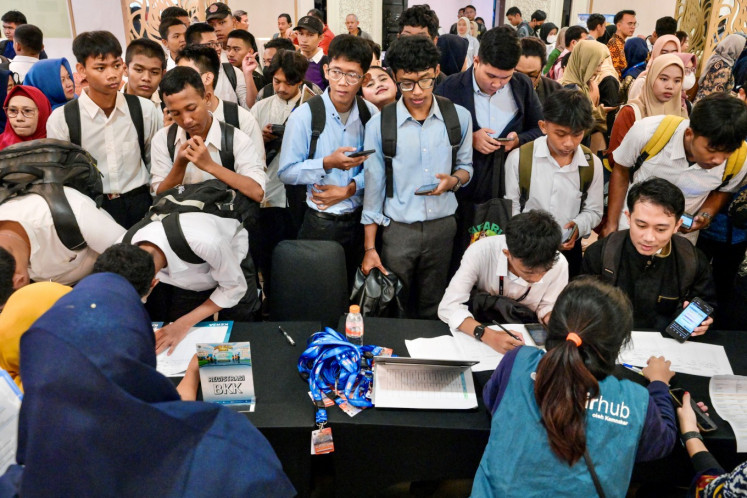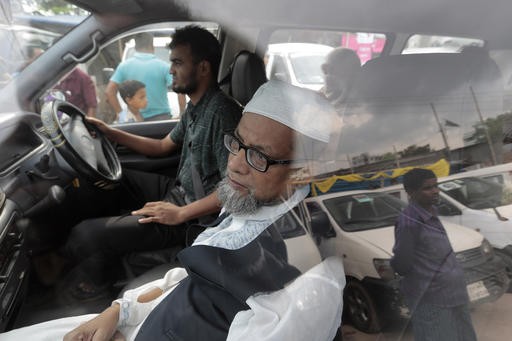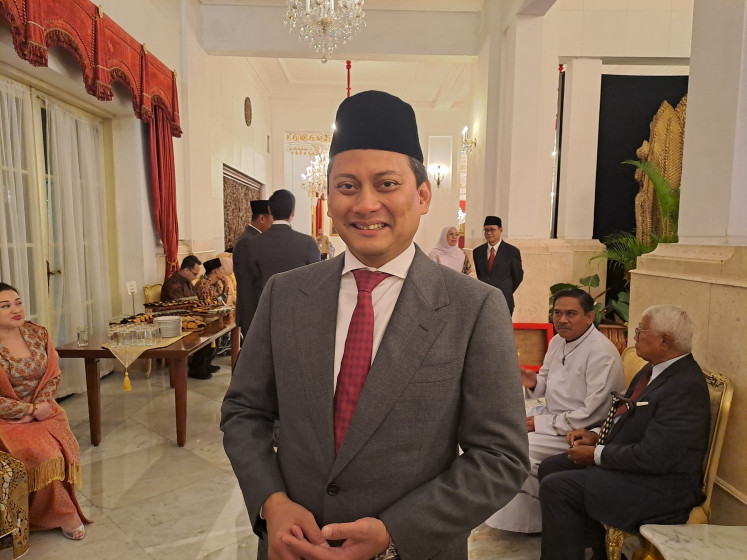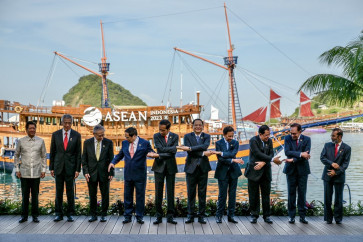Popular Reads
Top Results
Can't find what you're looking for?
View all search resultsPopular Reads
Top Results
Can't find what you're looking for?
View all search resultsASEAN marching toward digital community 2045
The current geopolitical tensions have shifted the world toward a multipolar paradigm as hegemonic dominance and resulted in unsustainable development.
Change text size
Gift Premium Articles
to Anyone
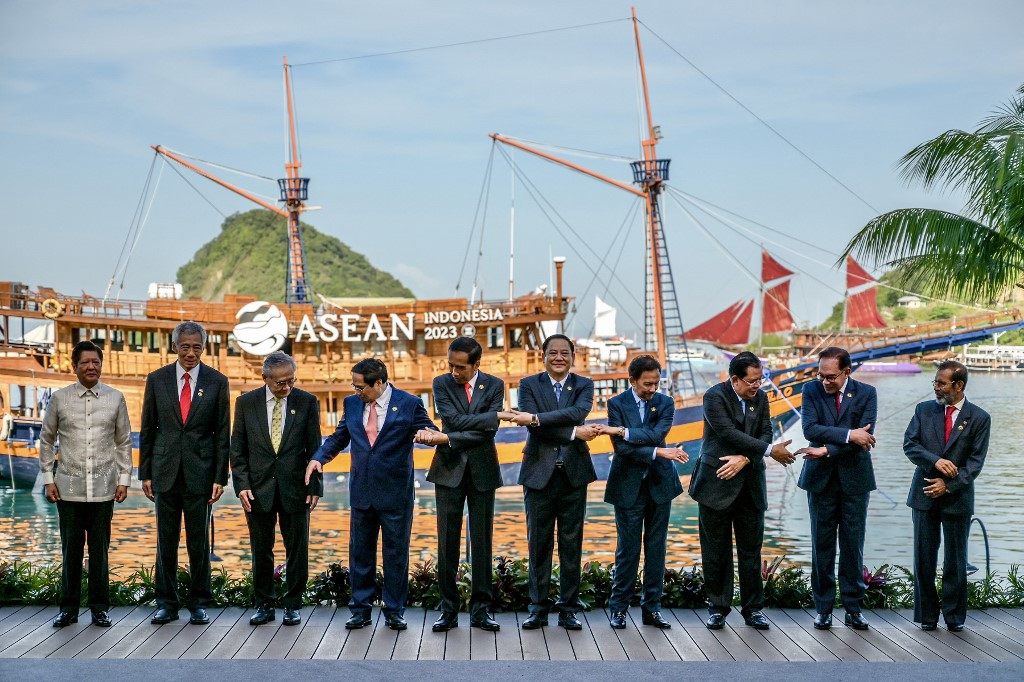 Standing in front of an ASEAN pisini (traditional ship) (left to right) Philippine President Ferdinand Marcos, Singapore's Prime Minister Lee Hsien Loong, Thailand's Deputy Prime Minister Don Pramudwinai, Vietnam's Prime Minister Pham Minh Chinh, President Joko “Jokowi“ Widodo, Laos' Prime Minister Sonexay Siphandone, Brunei's Prime Minister Hassanal Bolkiah, Cambodia's President Hun Sen, Malaysia's Prime Minister Anwar Ibrahim and Timor-Leste's Prime Minister Taur Matan Ruak pose for a family photo during the ASEAN Summit in Labuan Bajo, East Nusa Tenggara on May 10, 2023.
(AFP/Bay Ismoyo)
Standing in front of an ASEAN pisini (traditional ship) (left to right) Philippine President Ferdinand Marcos, Singapore's Prime Minister Lee Hsien Loong, Thailand's Deputy Prime Minister Don Pramudwinai, Vietnam's Prime Minister Pham Minh Chinh, President Joko “Jokowi“ Widodo, Laos' Prime Minister Sonexay Siphandone, Brunei's Prime Minister Hassanal Bolkiah, Cambodia's President Hun Sen, Malaysia's Prime Minister Anwar Ibrahim and Timor-Leste's Prime Minister Taur Matan Ruak pose for a family photo during the ASEAN Summit in Labuan Bajo, East Nusa Tenggara on May 10, 2023.
(AFP/Bay Ismoyo)
T
he top 100 issues that have been most searched and used these days all relate to one word: digital! Everything you think, see, say and do is related to digital in some way. In this era, digital has swept every corner of our lives.
One important issue among the 125 articles of the ASEAN Chairman's Statement resulting from the ASEAN Summit in Labuan Bajo, East Nusa Tenggara earlier this month is Article 60, which states, "…with a view to achieving inclusive digital transformation toward an ASEAN Digital Economic Community 2045".
The next summit during Indonesia’s ASEAN chairmanship is scheduled for Sept. 5-7.
First, let us reflect on the importance of the ASEAN Summit in setting a vision for ASEAN. In 2003, ASEAN agreed to establish the ASEAN Economic Community (AEC) by 2020, which was later accelerated to 2015.
In 2011, ASEAN decided to realize its East Asian integration by cementing the Regional Comprehensive Economic Partnership (RCEP), consisting of the 10 ASEAN countries and its five main trading and investment partners. The combined 15 countries represent one-third of the global population. RCEP countries also represent 30 percent of global gross domestic product (GDP), 27 percent of global trade and 30 percent of global foreign direct investment, making it a formidable economic bloc with increasing influence in the global economic landscape.
Second, let's try to understand the rationale behind establishing the ASEAN Digital Community 2045. ASEAN has a long history of colonization and imperialism, dating back to the late 17th century and extending well into the 20th century. Despite gaining independence, many Asian countries still face the lingering effects of colonialism and imperialism, such as economic inequality, political instability and social clashes.
With this long history of colonization and imperialism in Southeast Asia, it is crucial to keep ASEAN as a "region of peace", which does not take sides and stays independent both politically and economically. By reflecting on the past, ASEAN countries can better navigate current challenges and work toward creating a more equitable and prosperous future for all.





